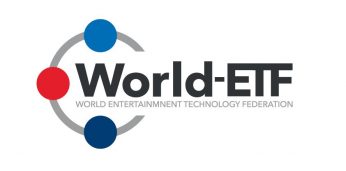
What is the World-ETF?
The World Entertainment Technology Federation is a non-profit group that brings together entertainment technology associations from around the globe to discuss the industry’s future and to encourage international cooperation.
Its focus is to debate and examine the role of the entertainment technology industry and promote its interests in the global marketplace.
The associations that form the World-ETF are:
The formation of the World-ETF formalised the relationship between the organisations and provided a framework for future joint projects.
About the World-ETF
The associations that form the World-ETF represent thousands of companies and hundreds of thousands of employees who provide products, equipment, expertise and services to live events worldwide.
The World-ETF supports free and fair trade as a fundamental principle. Any measures to increase trade barriers by raising customs duties, inhibiting the freedom of movement and employment for workers and artists, or implementing import bans would certainly have a negative impact on our sector.
What does the World-ETF do?
The World-ETF meets regularly during major industry trade shows such as PLASA Show, NAMM and Prolight+ Sound, represented by their key personnel and elected executives. At trade shows the federation promotes the associations by distributing literature and including news in their publications.
Additionally, as part of the collaboration, the associations agree to the mutual sharing of information and provide assistance to each other.

The associations within the World-ETF share the following characteristics:
- Not-for-profit trade organisations.
- Mutually owned by their members, of which the majority of the voting members are commercial entities.
- Formal constitution or by-laws.
- Elected board of directors or committee overseeing their activities.
- Ambition to ensure the quality of standards within the industry.
- Active and representative of the industry in the countries concerned.
- Screening procedure for new members with established membership criteria.
- Promote equal and fair-trading conditions and lobby their respective governments.
- Have a code of ethics that their members agree to.




